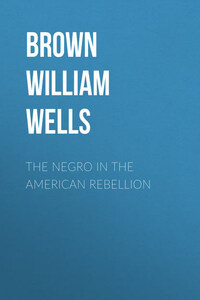The First Cargo of Slaves landed in the Colonies in 1620. – Slave Representation in Congress. – Opposition to the Slave-Trade. – Crispus Attucks, the First Victim of the Revolutionary War. – Bancroft’s Testimony. – Capture of Gen. Prescott. – Colored Men in the War of 1812. – Gen. Andrew Jackson on Negro Soldiers.
I now undertake to write a history of the part which the colored men took in the great American Rebellion. Previous to entering upon that subject, however, I may be pardoned for bringing before the reader the condition of the blacks previous to the breaking out of the war.
The Declaration of American Independence, made July 4, 1776, had scarcely been enunciated, and an organization of the government commenced, ere the people found themselves surrounded by new and trying difficulties, which, for a time, threatened to wreck the ship of state.
The forty-five slaves landed on the banks of the James River, in the colony of Virginia, from the coast of Africa, in 1620, had multiplied to several thousands, and were influencing the political, social, and religious institution’s of the country. Brought into the colonies against their will; made the “hewers of wood and the drawers of water;” considered, in the light of law and public opinion, as mere chattels, – things to be bought and sold at the will of the owner; driven to their unrequited toil by unfeeling men, picked for the purpose from the lowest and most degraded of the uneducated whites, whose moral, social, and political degradation, by slavery, was equal to that of the slave, – the condition of the negro was indeed a sad one.
The history of this people, full of sorrow, blood, and tears, is full also of instruction for mankind. God has so ordered it that one class shall not degrade another, without becoming themselves contaminated. So with slavery in America. The institution bred in the master insulting arrogance, deteriorating sloth, pampered the loathsome lust it inflamed, until licentious luxury sapped the strength and rottened the virtue of the slave-owners of the South. Never were the institutions of a people, or the principles of liberty, put to such a severe test as those of the American Republic. The convention to frame the Constitution for the government of the United States had not organized before the slave-masters began to press the claims of their system upon the delegates. They wanted their property represented in the national Congress, and undue guarantees thrown around it; they wanted the African slave-trade made lawful, and their victims returned if they should attempt to escape; they begged that an article might be inserted in the Constitution, making it the duty of the General Government to put down the slaves if they should imitate their masters in striking a blow for freedom. They seemed afraid of the very evil they were clinging so closely to. “Thus conscience doth make cowards of us all.”
In all this early difficulty, South Carolina took the lead against humanity, her delegates ever showing themselves the foes of freedom. Both in the Federal Convention to frame the Constitution, and in the State Conventions to ratify the same, it was admitted that the blacks had fought bravely against the British, and in favor of the American Republic; for the fact that a black man (Crispus Attucks) was the first to give his life at the commencement of the Revolution was still fresh in their minds. Eighteen years previous to the breaking out of the war, Attucks was held as a slave by Mr. ‘William Brown of Framingham, Mass., and from whom he escaped about that time, taking up his residence in Boston. The Boston Massacre, March 5, 1770, may be regarded as the first act in the great drama of the American Revolution. “From that moment,” said Daniel Webster, “we may date the severance of the British Empire.” The presence of the British soldiers in King Street excited the patriotic indignation of the people. The whole community was stirred, and sage counsellors were deliberating and writing and talking about the public grievances. But it was not for “the wise and prudent” to be the first to









